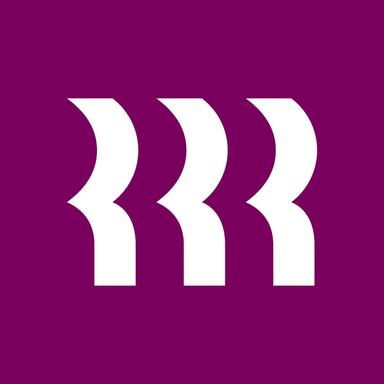Compare Features
Feature List | ADP Workforce Now |  Rippling HR | Paychex Flex | Gusto HR Software |  Sage HR |
|---|---|---|---|---|---|
Employee Information Management | |||||
Recruitment and Applicant Tracking | |||||
Performance Management | |||||
Attendance and Time Tracking | |||||
Employee Onboarding | |||||
Training and Development | |||||
Benefits Administration | |||||
Compensation Management | |||||
Employee Self-Service Portal | |||||
Workforce Analytics |
Top 10 ADP Alternatives
Regardless of their end product, every company operating in the corporate world needs a reliable Human Capital Management (HCM) solution. ADP is a name that has risen as a leading provider of HCM services. The platform’s services include payroll, talent management, benefits, and any other HR-related functionalities a client may need.
The platform has a substantial presence in the market due to the sheer number of its functions. However, despite its dominance, some users have expressed certain concerns with the software. Non-transparent pricing, a complex user interface that can be difficult to navigate, and a need for more modern or specialized features that cater to unique business needs have all been cited as issues. These issues, along with other problems, have led companies to explore alternative solutions that offer a better user experience, and that is where we come in.
This article reviews the top ADP alternatives available on the market to help you find a solution that’s the best fit for your unique organizational needs. For each product, we will cover:
- How the software compares to ADP
- Pros and cons
- Cost details
TL;DR: Which platform offers the best alternative to ADP? Gusto stands out as the top pick due to its powerful HR integrations with other software and ease of use.
Our Top Ten ADP Alternative Recommendations
Gusto
Best For: Startups And Small Organizations
Overall Rating: 4.5 (411 reviews)
Free Trial: One-Month Free Trial
First up on our list is Gusto, a modern and user-friendly platform that is often seen as a significant challenger to ADP, especially when it comes to small and mid-sized businesses. While ADP offers a more comprehensive set of tools, its user interface can sometimes be seen as a bit complex. In comparison, Gusto is designed with ease of use in mind. Thus, it simplifies important tasks like payroll, benefits, and HR. It earns a spot on our list with its transparent pricing structure, making it a more predictable and often more affordable option for growing companies.
What Are The Pros And Cons Of Gusto?
Pros | Cons |
|
|
How Much Does Gusto Cost?
Gusto offers pricing in the following plans:
- Simple at $49/month plus $6/employee/month
- Plus at $80/month plus $12/employee/month
- Premium at $180/month plus $22/employee/month
There is also a Solo pricing plan at $49/month plus $6/employee/month.
Disclaimer: Pricing is subject to change.
Paychex
Best For: Organizations With Complex HR Needs
Overall Rating: 3.8 (65 reviews)
Free Trial: Not Available
Next up is Paychex Flex, a powerful software offering a scalable HR platform for businesses of all sizes. While ADP acts as a dominant force with a broad set of products, Paychex makes its mark with strong customer support and a more hands-on, consultative approach, especially for smaller businesses that need the support.
Unlike ADP, which may require businesses to switch platforms as they grow (such as from ADP Run to Workforce Now), Paychex offers a single platform that can scale and grow with your business, simplifying the transition and learning curve as you add features and expand.
What Are The Pros And Cons Of Paychex?
Pros | Cons |
|
|
How Much Does Paychex Cost?
Paychex offers three plans with customized pricing based on unique needs. These plans are:
- Select
- Pro
- Enterprise
Disclaimer: Pricing is subject to change.
Rippling
Best For: Tech-Forward Companies
Overall Rating: 4.9 (14 reviews)
Free Trial: Not Available
The next option is Rippling HR, a modern, all-in-one platform that combines HR, IT, and payroll management. The platform’s unification feature is what distinguishes it from ADP’s more traditional HCM focus. While ADP is great at HR and payroll, Rippling’s core strength is automation and integration, allowing companies to automate everything from employee onboarding to app and device management.
This unified approach provides a more straightforward and efficient experience than using separate, integrated modules like ADP’s.
What Are The Pros And Cons Of Rippling?
Pros | Cons |
|
|
How Much Does Rippling Cost?
Pricing for Rippling is customized based on selected modules. There are four service categories to choose from. These include:
- Rippling Platform
- Rippling HCM
- Rippling IT
- Rippling Spend
Disclaimer: Pricing is subject to change.
UKG Pro
Best For: Large Enterprises And Global Organizations
Overall Rating: 4.1 (21 reviews)
Free Trial: Not Available
UKG, also known as Ultimate Kronos Group, is next up on our recommendations. It is an enterprise-level HCM solution that competes directly with ADP’s features, especially when it comes to large multinational companies. While both platforms provide dedicated HR tools, UKG Pro is more widely recognized for its focus on talent management capabilities and the sophisticated nature of its workforce management features.
The system offers deeper insights into employee performance and engagement, and this offering gives it an edge over ADP.
What Are The Pros And Cons Of UKG Pro?
Pros | Cons |
|
|
How Much Does UKG Pro Cost?
Pricing for UKG Pro ranges between $26-$37/user/month.
Disclaimer: Pricing is sourced from third-party sites and is subject to change.
Ceridian Dayforce
Best For: Mid-market Level Companies
Overall Rating: 5 (1 review)
Free Trial: Not Available
Dayforce HCM is a platform that stands out from ADP by offering a single and unified database for all its modules, including payroll, HR, benefits, and time and attendance. In contrast to this single interface approach, many of ADP’s platforms are a collection of separate modules that are integrated and can be harder to manage. Dayforce’s single-database architecture provides users with real-time data, significantly improving accuracy and efficiency across the workforce.
What Are The Pros And Cons Of Ceridian Dayforce?
Pros | Cons |
|
|
How Much Does Ceridian Dayforce Cost?
The vendor offers customized pricing plans.
Workday
Best For: Financial Organizations
Overall Rating: NA
Free Trial: Not Available
Workday HCM is another powerful HCM and financial management system that has specifically been designed for large, global enterprises. While ADP provides a larger range of HR services, Workday offers a more organized and configurable solution with a stronger focus on strategic planning, analytics, and talent management.
It offers real-time reporting and AI-powered insights that give it a competitive advantage when it comes to companies that need a tool for workforce planning, and a level of functionality that goes beyond ADP’s core strengths in payroll and HR.
What Are The Pros And Cons Of Workday?
Pros | Cons |
|
|
How Much Does Workday Cost?
Pricing for Workday is customized and available upon request.
BambooHR
Best For: Ease Of Use And Employee Experience
Overall Rating: 4.3 (79 reviews)
Free Trial: Available
BambooHR can also be a great pick, as it is a cloud-based HR platform that stands out from ADP with its singular focus on building a better employee experience. While ADP provides a powerful, but sometimes clunky and dated interface, BambooHR is known for its smooth and clean design that makes it easy for both HR teams and employees to use.
Its features are centered more around the employee lifecycle, from hiring and onboarding to performance management, built for an easier experience, making it an excellent choice for businesses that want a more modern, people-focused HR solution.
What Are The Pros And Cons Of BambooHR?
Pros | Cons |
|
|
How Much Does BambooHR Cost?
Pricing for BambooHR is offered in three plans;
- Core
- Pro
- Elite
With price starting from $10/employee/month.
Disclaimer: Pricing is subject to change.
Paylocity
Best For: Companies Needing Better Employee Engagement
Overall Rating: 4.2 (43 reviews)
Free Trial: Not Available
Paylocity HR and payroll system ends up on our list as it offers a complete HCM system that is a strong alternative to ADP, with a deeper focus on employee engagement and communication. While ADP provides a solid, traditional HR platform, Paylocity adds modern communication tools and a mobile-first approach to its core features.
This focus on engaging employee experience, with features like a social feed and peer recognition tools, gives it a distinct advantage over ADP for companies that want to foster a more connected and collaborative workplace.
What Are The Pros And Cons Of Paylocity?
Pros | Cons |
|
|
How Much Does Paylocity Cost?
Paylocity offers a wide range of modules, each with customized pricing. These include:
- Payroll
- Human Resources
- Workforce Management
- Talent Management
- Benefits Management
- Employee Experience Platform
- Marketplace Integrations
- Beyond Traditional HRIS
Disclaimer: Pricing is subject to change.
Justworks
Best For: Companies Needing Professional Employer Organization (PEO)
Overall Rating: 4.4 (11 reviews)
Free Trial: Not Available
Justworks comes with a PEO system that makes HR tasks easier for startups by handling payroll, benefits, and compliance. While ADP also offers PEO services, Justworks takes the edge due to its transparent and clear-cut pricing along with a user-friendly system, which many users believe to be better than ADP’s.
The platform’s layout is simple and predictable, which makes it a great alternative for smaller businesses that want to outsource their HR problems and provide enterprise-level benefits to their employees without the hassle that comes with a larger provider.
What Are The Pros And Cons Of Justworks?
Pros | Cons |
|
|
How Much Does Justworks Cost?
Justworks offers three different pricing plans. These are:
- Payroll at $50/month + $8/employee/month
- PEO Basic at $79/employee/month
- PEO Plus at $109/employee/month
Disclaimer: Pricing is subject to change.
OnPay
Best For: Organizations Looking For Affordable Payroll Options
Overall Rating: 4.7 (47 reviews)
Free Trial: Available
Onpay Payroll, our last pick, is a full-service payroll platform that comes with HR capabilities. This system is a more affordable and simpler alternative to ADP, especially for companies that are just starting. While ADP can be complicated, with multiple add-ons and layers of functions, OnPay provides a single and more transparent pricing structure that includes all payroll features, tax filings, and even basic HR tools.
Its user-friendly interface and associated services give it an edge for business owners who need an easy-to-use but more reliable solution without a steep learning curve.
What Are The Pros And Cons Of OnPay?
Pros | Cons |
|
|
How Much Does OnPay Cost?
OnPay’s pricing is straightforward, starting at $49/month + $6/user/month.
Disclaimer: The pricing is subject to change.
How We Chose Our ADP Alternatives
Our team here at Software Finder carried out a detailed evaluation of multiple HCM platforms in search of the best alternatives to ADP for you. The review process included the following steps:
- User Feedback: We pored over user reviews from different platforms, including our competitors, and gathered feedback from professionals through detailed surveys to get the most authentic choices for you
- Hands-On Testing: Our team tested software demos and free trials where we could find them to carefully assess functionality, ease of use, and other capabilities in real-world scenarios. We paid special attention to each platform’s ability to handle payroll, benefits, and HR administration in a streamlined way
- Industry Expert Collaboration: We collaborated with HR, payroll, and business management experts to gain insights into the specific needs of companies and how different alternatives deal with their primary problems, such as complicated payment needs or limited user-friendliness
- Feature Evaluation: We evaluated each software based on how its interface was structured, what kind of pricing models, customer support, scalability, and core functionalities it offered. This included testing payroll, benefits, talent management, and reporting capabilities, to make sure they were suitable for different business types
- Final Recommendations: After careful consideration, we selected alternatives that can effectively deal with the challenges faced by organizations looking for a more transparent, user-friendly, or specialized set of HR and payroll options
Selecting The Best ADP Alternative
Despite our best efforts at guidance, we also understand that picking the right alternative to ADP can be challenging simply because of the range of options out there. Especially when all of them come with different features, various pricing models, and drastically different levels of customization. At the end of the day, it is important to understand your own organization’s specific needs, your budget, and the workflows you deal with to find a solution that can deal with your company culture and requirements in the best possible way.
On top of that, you should consider scheduling software demos, try comparing pricing structures, and get feedback from other HR professionals on your own to assess a vendor’s reliability and level of functionality. This simple, yet comprehensive approach will help you make a better decision and select the best payroll and HR platform for your individual needs.


